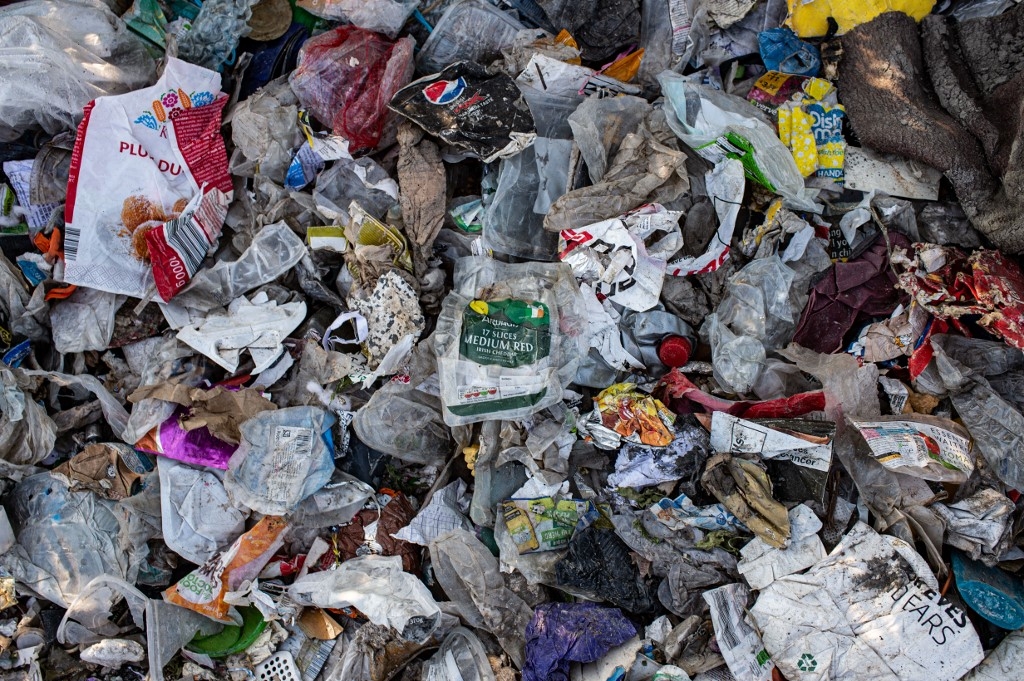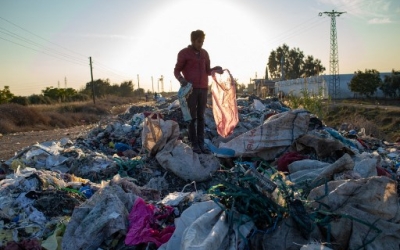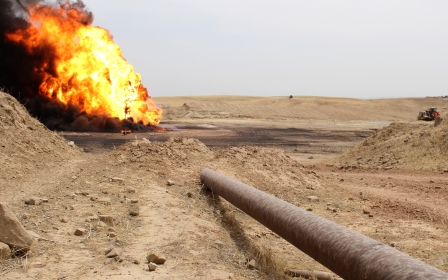UK and EU plastic waste pollutes soil and water in Turkey, says Greenpeace

Non-recyclable plastic waste exported illegally from the UK and Germany to Turkey has exposed the city of Adana to toxic chemicals that cause cancer and other diseases in locals, Greenpeace said in a new report this week.
The report, which was prepared by looking at samples taken from five plastic waste-burning sites in Adana last April, indicated the presence of a wide range of toxic chemicals, including human carcinogens, in ash, soil and water samples, many of which are known to be produced during the process of burning plastics. Some of the burning sites were in close proximity to agricultural fields.
New MEE newsletter: Jerusalem Dispatch
Sign up to get the latest insights and analysis on Israel-Palestine, alongside Turkey Unpacked and other MEE newsletters
Greenpeace revealed last year that Turkey received almost 40 percent of the UK’s plastic waste exports (209,642 tonnes) in 2020, nearly half of which was mixed plastic that is mostly non-recyclable.
The report found that EU member states also exported 20 times more plastic waste to Turkey in 2020 compared with 2016 - about 447,000 tonnes - making Turkey the largest export country for plastic waste from the EU.
Large amounts of plastic waste were found at 10 locations on the outskirts of Adana: these were dumped illegally in fields, near rivers, railway tracks and on the roadside, and were often on fire or had already been burned.
Plastic waste from the UK was found at these sites, including packaging and plastic bags from retailers such as Tesco, Asda, the Co-op, Aldi, Sainsbury’s, Lidl and Marks & Spencer, as well as Lucozade and Fanta bottles and a car registration plate.
“The plastic waste samples collected from dumping and open burning sites located in Cukurova/Karahan, Seyhan/Kuyumcular, and Yuregir/Incirlik were found to contain various toxic organic chemicals as well as relatively high concentrations of diverse types of metals and metalloids,” the Greenpeace analysis on the samples said. “Chlorinated dioxins and furans were found at high concentrations in the soil and ash samples. These are known, in the long term, to lead to severe health conditions, including cancer, by accumulating within the body.”
The report said that in all locations in the Adana burning sites, except for Seyhan/Kuyumcular, chlorinated benzene compounds were found - some of which can disrupt the hemoglobin metabolism, and cause skin lesions and liver disease.
The report added that some of the organic pollutants detected in the sites could directly and indirectly contaminate nearby surface water and can leak into underground water sources.
"This pollution can potentially have hazardous impacts on the flora, the fauna (including micro-organisms) and humans,” the report said. “Lead has no safe level in the blood and is known to impact the nervous system. Lead exposure can cause mental impairment, behavioural disorders and learning difficulties in children.”
Turkey imposed a total ban on plastic waste imports last year, but reversed its decision just eight days later, following a campaign by the country’s plastics industry.
Middle East Eye delivers independent and unrivalled coverage and analysis of the Middle East, North Africa and beyond. To learn more about republishing this content and the associated fees, please fill out this form. More about MEE can be found here.





